Preparing for Your Time in New Zealand
STUDENT
AND PARENT
PRE-DEPARTURE INFORMATION



AND PARENT
PRE-DEPARTURE INFORMATION


WELCOME TO NEW ZEALAND AND SAINT KENTIGERN COLLEGE
WELCOME TO NEW ZEALAND AND SAINT KENTIGERN COLLEGE
New Zealand/Aotearoa is a special place to visit, travel and study. We have beautiful beaches, lovely forests, snowy mountains, green farmland, interesting cities and towns and friendly, welcoming people
NNNew Zealand has a population of 5.1 million. English, Maori, and New Zealand Sign Language are the official languages, although most people speak English.
ew Zealand/Aotearoa is a special place to visit, travel and study. We have beautiful beaches, lovely forests, snowy mountains, green farmland, interesting cities and towns and friendly, welcoming people
ew Zealand/Aotearoa is a special place to visit, travel and study. We have beautiful beaches, lovely forests, snowy mountains, green farmland, interesting cities and towns and friendly, welcoming people
New Zealand has a population of 5.1 million. English, Maori, and New Zealand Sign Language are the official languages, although most people speak English.
New Zealand is a popular destination for international students. Our excellent educational system is recognized worldwide.
New Zealand has a population of 5.1 million. English, Māori, and New Zealand Sign Language are the official languages, although most people speak English.
New Zealand is a popular destination for international students. Our excellent educational system is recognized worldwide.
We are glad you are coming to New Zealand and spending time at Saint Kentigern College.
New Zealand is a popular destination for international students. Our excellent educational system is recognized worldwide.
We hope you enjoy your time here, learn something new and make new friends.
We are glad you are coming to New Zealand and spending time at Saint Kentigern College.
We are glad you are coming to New Zealand and spending time at Saint Kentigern College.
We hope you enjoy your time here, learn something new and make new friends.
We hope you enjoy your time here, learn something new and make new friends.
This is a map of New Zealand. Can you find the region where you will be studying?
This is a map of New Zealand. Can you find the region where you will be studying?
This is a map of New Zealand. Can you find the region where you will be studying?
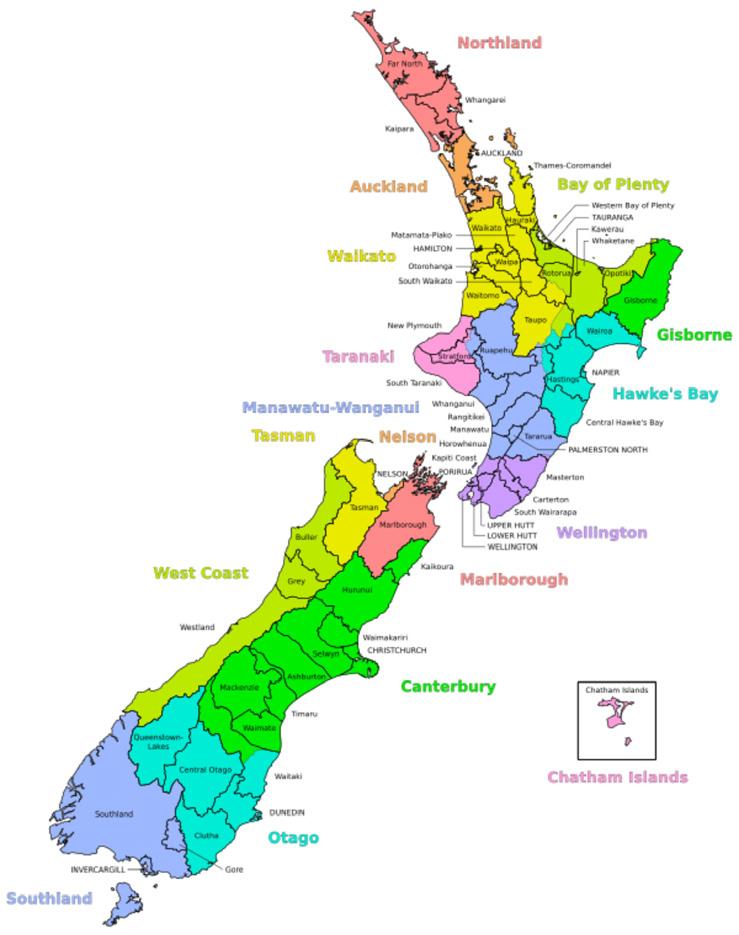
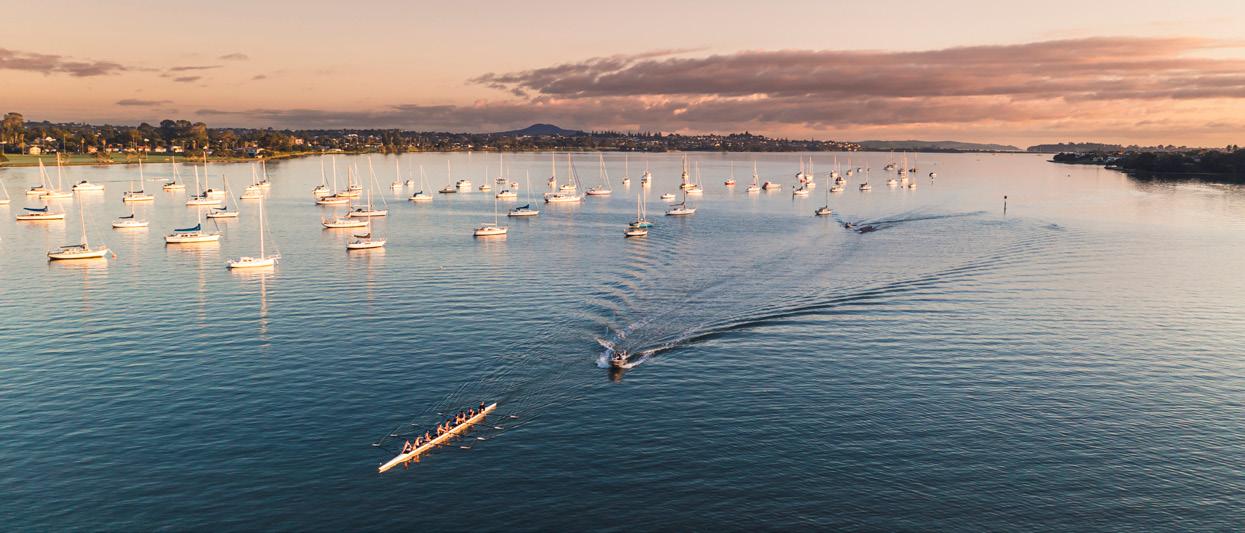
The average New Zealand temperature decreases as you travel south. January and February coldest month.
The average New Zealand temperature decreases as you travel south. January and February coldest month.
The average New Zealand temperature decreases as you travel south. January and February coldest month.
The average New Zealand temperature decreases as you travel south. January and February coldest month.
THE AVERAGE NEW ZEALAND TEMPERATURE DECREASES AS YOU TRAVEL SOUTH. JANUARY AND FEBRUARY ARE OUR WARMEST MONTHS, AND JULY IS OUR COLDEST MONTH
The weather in New Zealand can change fast. Be prepared for changes in weather and temperature, particularly if doing outdoor activities.
A helpful website to check the climate and weather in your region is: www.newzealand.com/int/feature/new-zealandclimate-and-weather

The weather in New Zealand can change fast. Be prepared for changes in weather and temperature, activities.
The weather in New Zealand can change fast. Be prepared for changes in weather and temperature, activities.
The weather in New Zealand can change fast. Be prepared for changes in weather and temperature, activities.
The weather in New Zealand can change fast. Be prepared for changes in weather and temperature, activities.
A helpful website to check the climate and weather in your region is: www.newzealand.com/int/feature/new-zealand-climate-and-weather
A helpful website to check the climate and weather in your region is: www.newzealand.com/int/feature/new-zealand-climate-and-weather
A helpful website to check the climate and weather in your region is: www.newzealand.com/int/feature/new-zealand-climate-and-weather
A helpful website to check the climate and weather in your region is: www.newzealand.com/int/feature/new-zealand-climate-and-weather

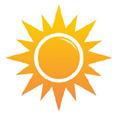


SPRING
SPRING
SPRING
SPRING
September–November
SPRING
September–November
September–November
September–November
Average daytime temperatures 16–19˚C (61–66˚F)
September–November
Average daytime temperatures 16–19˚C (61–66˚F)
Average
Average daytime temperatures 16–19˚C (61–66˚F)
Average
SUMMER
SUMMER
SUMMER
SUMMER
SUMMER
December–February
December–February
December–February
December–February
Average daytime temperatures 20–25˚C (68–77˚F)
December–February
Average daytime temperatures 20–25˚C (68–77˚F)
Average
Average daytime temperatures 20–25˚C (68–77˚F)
Average
AUTUMN
AUTUMN
AUTUMN
March–May
AUTUMN
AUTUMN
March–May
March–May
March–May
Average daytime temperatures 17–21˚C (62–70˚F)
March–May
Average daytime temperatures 17–21˚C (62–70˚F)
Average
Average daytime temperatures 17–21˚C (62–70˚F)
Average
WINTER
WINTER
WINTER
WINTER
June–August
WINTER
June–August
June–August
June–August
June–August
Average daytime temperatures 12–16˚C (53–61˚F)
Average daytime temperatures 12–16˚C (53–61˚F)
Average
Average daytime temperatures 12–16˚C (53–61˚F)
Average
New Zealand banks are open from 9.30 am to 4.30 pm, Monday to Friday.
• Automated Teller Machines (ATMs) are widely available at banks, on main shopping streets and in malls.
International credit cards and ATM cards will work if you have a four-digit PIN code.
Please check with your bank before leaving home.
BANKING
A helpful website to convert currency is www.xe.com/currencyconverter
• Meal at a restaurant: $25–$50
Monthly cell phone plan: $25–$50
Movie ticket: $20
New Zealand banks are open from 9.30 am to 4.30 pm, Monday to Friday.
You can bring cash to New Zealand.
BANKING
BANKING
• Automated Teller Machines (ATMs) are widely available at banks, on main shopping streets and in malls.
Bus cost: $4.00 - $5.00 each ride
Big Mac: $9
Please check with your bank before leaving home.
• However, you must complete a Border Cash Report if it is more than NZ$10,000 in cash.
New Zealand banks are open from 9.30 am to 4.30 pm, Monday to Friday. Automated Teller Machines (ATMs) are widely available at banks, on main shopping streets and in malls.
• New Zealand banks are open from 9.30 am to 4.30 pm, Monday to Friday.
• Automated Teller Machines (ATMs) are widely available at banks, on main shopping streets and in malls. International credit cards and ATM cards will work if you have a four-digit PIN code. Please check with your bank before leaving home.
• International credit cards and ATM cards will work if you have a four-digit PIN code.
WHAT THINGS COST
BRINGING CASH INTO NEW ZEALAND
• International credit cards and ATM cards will work if you have a four-digit PIN code. Please check with your bank before leaving home.
POCKET MONEY
Meal at a restaurant: $25–$50
Monthly cell phone plan: $25–$50
You can bring cash to New Zealand.
Movie ticket: $20
• Meal at a restaurant: $25–$50
• However, you must complete a Border Cash Report if it is more than NZ$10,000 in cash.
While at the school, you will need approximately $50 per week to spend money.
• Bus cost: $4.00 - 5.00
• Monthly cell phone plan: $25–$50
While at the school, you will need approximately $50 per week spending money.
CURRENCY EXCHANGE
• Movie ticket: $20 Bus cost: $4.00 - 5.00 each
Foreign currency can easily be exchanged at banks, hotels, and Bureau de Change kiosks in international airports and most city centres.
BRINGING CASH INTO NEW ZEALAND
You can bring cash to New Zealand. However, you must complete a Border Cash Report if it is more than NZ$10,000 in cash.
BRINGING CASH INTO NEW ZEALAND
• You can bring cash to New Zealand.
CURRENCY EXCHANGE
CURRENCY EXCHANGE
• However, you must complete a Border Cash Report if it is more than NZ$10,000 in cash.
• Coins have values of 10, 20, 50 cents, $1 and $2 Notes have values of $5, $10, $20, $50 and $100
Foreign currency can easily be exchanged at banks, hotels, and Bureau de Change kiosks in international airports and most city centres.
CURRENCY VALUES
• Big Mac: $9
Foreign currency can easily be exchanged at banks, hotels, and Bureau de Change kiosks in international airports and most city centres.

While at the school, you will need approximately $50 per week to spend money.
CURRENCY VALUES
While at the school, you will need approximately $50 per week to spend money.
• Coins have values of 10, 20, 50 cents, $1 and $2

• Notes have values of $5, $10, $20, $50 and $100
Foreign currency can easily be exchanged at banks, hotels, and Bureau de Change kiosks in international airports and most city centres.

CURRENCY CONVERTER
A helpful website to convert currency is www.xe.com/currencyconverter

CURRENCY VALUES
• Coins have values of 10, 20, 50 cents, $1 and $2
• Notes have values of $5, $10, $20, $50 and $100
CURRENCY CONVERTER
Coins have values of 10, 20, 50 cents, $1 and $2
Notes have values of $5, $10, $20, $50 and $100
A helpful website to convert currency is www.xe.com/currencyconverter
CURRENCY CONVERTER
A helpful website to convert currency is www.xe.com/currencyconverter
BEFORE TRAVELLING TO NEW ZEALAND, YOU MUST ENSURE YOUR PASSPORT IS VALID FOR AT LEAST SIX MONTHS AFTER YOUR EXPECTED DEPARTURE DATE.
As you study for over twelve weeks, please apply for a student visa at least eight weeks before departure.
A helpful website to find out what you need to travel to New Zealand is: www.immigration.govt.nz/new-zealand-visas/apply-for-a-visa
BEFORE TRAVELLING TO NEW ZEALAND, YOU MUST ENSURE YOUR PASSPORT IS VALID FOR AT LEAST SIX MONTHS AFTER YOUR EXPECTED DEPARTURE DATE.
You can find the list of New Zealand visa waiver countries here: https://www.immigration.govt.nz/new-zealand-visas/preparing-a-visa-application/your-journey-to-new-zealand/beforeyou-travel-to-new-zealand/visa-waiver-countries
As you study for over twelve weeks, please apply for a student visa at least eight weeks before departure.
A helpful website to find out what you need to travel to New Zealand is:
BEFORE TRAVELLING TO NEW ZEALAND, YOU MUST ENSURE YOUR PASSPORT IS VALID FOR AT LEAST SIX MONTHS AFTER YOUR EXPECTED DEPARTURE DATE.
Some New Zealand visitors can travel without a visa if they get an NZeTA before they travel. You can find out more about this and apply here:
BEFORE TRAVELLING TO NEW ZEALAND, YOU MUST ENSURE YOUR PASSPORT IS VALID FOR AT LEAST SIX MONTHS AFTER YOUR EXPECTED DEPARTURE DATE
www.immigration.govt.nz/new-zealand-visas/apply-for-a-visa
https://www.immigration.govt.nz/new-zealand-visas/visas/visa/nzeta
As you study for over twelve weeks, please apply for a student visa at least eight weeks before departure.
As you study for over twelve weeks, please apply for a student visa at least eight weeks before departure.
A helpful website to find out what you need to travel to New Zealand is: www.immigration.govt.nz/new-zealand-visas/apply-for-a-visa
You can find the list of New Zealand visa waiver countries here: https://www.immigration.govt.nz/new-zealand-visas/preparing-a-visa-application/your-journey-to-new-zealand/beforeyou-travel-to-new-zealand/visa-waiver-countries
You can find the list of New Zealand visa waiver countries here: https://www.immigration.govt.nz/new-zealand-visas/preparing-a-visa-application/your-journey-to-new-zealand/beforeyou-travel-to-new-zealand/visa-waiver-countries
Some New Zealand visitors can travel without a visa if they get an NZeTA before they travel. You can find out more about this and apply here: https://www.immigration.govt.nz/new-zealand-visas/visas/visa/nzeta
Some New Zealand visitors can travel without a visa if they get an NZeTA before they travel. You can find out more about this and apply here:
A helpful website to find out what you need to travel to New Zealand is: www.immigration.govt.nz/new-zealandvisas/apply-for-a-visa
You can find the list of New Zealand visa waiver countries here: https://www.immigration.govt.nz/visit/ what-you-need-to-visit-new-zealand/ visa-waiver-countries-and-territories/
https://www.immigration.govt.nz/new-zealand-visas/visas/visa/nzeta
Some New Zealand visitors can travel without a visa if they get an NZeTA before they travel. You can find out more about this and apply here: https://www.immigration.govt.nz/newzealand-visas/visas/visa/nzeta
YOUR FLIGHT INTO NEW ZEALAND WILL BE TO AUCKLAND. THE PROCESS INTO THE ARRIVAL AREA IS THE SAME FOR ALL AIRPORTS
Complete the New Zealand Traveller Declaration online at https://www.travellerdeclaration.govt.nz. If you don’t complete it online, you can complete a Paper Arrival Declaration on board the flight or when you arrive in New Zealand.
If you do the paper version, give your Traveller Declaration to the Immigration Officer at Passport Control.
The officer will check your passport, visa and Traveller Declaration card. They may ask you questions like: Where will you stay? Where was your last destination? Do you have any food with you? Have you visited New Zealand before?
After checking your passport and visa, you will get an Immigration New Zealand stamp.
Your passport will be returned to you.
Collect your bags from the baggage claim area.
Your bags will go through an x-ray machine, and inspectors might look in your bags.
Once Customs and Biosecurity have cleared you, you will walk through the arrival doors.
Welcome to New Zealand!
If you are not travelling with your parents, your caregiver will meet you.
BELOW ARE SOME ITEMS WE SUGGEST YOU PACK FOR YOUR TIME IN NEW ZEALAND. YOU WILL NEED TO BRING DIFFERENT THINGS DEPENDING ON THE TIME OF THE YEAR YOU ARE COMING
Passport and current visa to study in New Zealand
• Travel/medical insurance policy
Any medication you take
• Laptop and mobile phone
Pocket money (if you have money to change into New Zealand dollars, please let your designated caregiver know and they will be able to assist with helping you to do this)
Adapter plug(s) for electrical items. The electrical supply is 230/240 volts
A few personal belongings to help your room feel like home
• If you are bringing anything valuable (i.e. camera, phone, laptop etc), you MUST have copies of the purchase receipt. You will not be able to claim for insurance if you do not have proof of the purchase price.
If you are coming during our spring and summer months, we suggest:
Swimwear
• Sunhat, sunglasses and sunscreen – the New Zealand sun is very strong
Shorts and/or skirts
• Tshirts and/or short sleeve shirts
Jumper and/or sweatshirt
• Light raincoat
Good walking shoes and sandals
• Your choice of other clothing and footwear
If you are coming during our autumn and winter months we suggest:
• Warm waterproof jacket
Jumper and/or sweater
• Long pants and/or jeans
Long sleeved shirt and/or tshirt
• Scarf, hat and maybe gloves
Good walking shoes
• Your choice of other clothing and footwear
Some items are not allowed into New Zealand. These include food, plants and animal products.
YOU MUST DECLARE ANY FOOD YOU BRING WITH YOU.
These items include: Meat
• Eggs Dairy Products
• Dried mushrooms and fungi
Honey and honey products
• Seeds for human consumption and processing into food
Nuts, spices, herbs and unpopped popcorn
• Dried, cooked or preserved fruit and vegetables
Fresh fruit or vegetables
If you do not declare your items, you will be fined around NZ$400, and the items will be taken from you.
The New Zealand government requires you to have insurance to cover your travel and the cost of medical treatment during your stay in New Zealand. Insurance policies must be approved by the school and must meet the requirements of The Education (Pastoral of Tertiary and International Learners) Code of Practice 2021.
If you go to the doctor while you are in New Zealand, you must pay for the visit and then claim the cost back later with your insurance company. Ask the school to help you do this.
Please note that if you have a current medical condition, we MUST know about it for insurance purposes.
You must have proof of purchase to claim on your insurance for lost or stolen items.
Saint Kentigern College will arrange insurance for you through Allianz Partners, purchasing a Studentsafe Inbound Learner policy, which you can find more about here:
STUDENT SAFE
https://www.insurancesafenz.com/ studentsafe/student-safe-inboundlearners
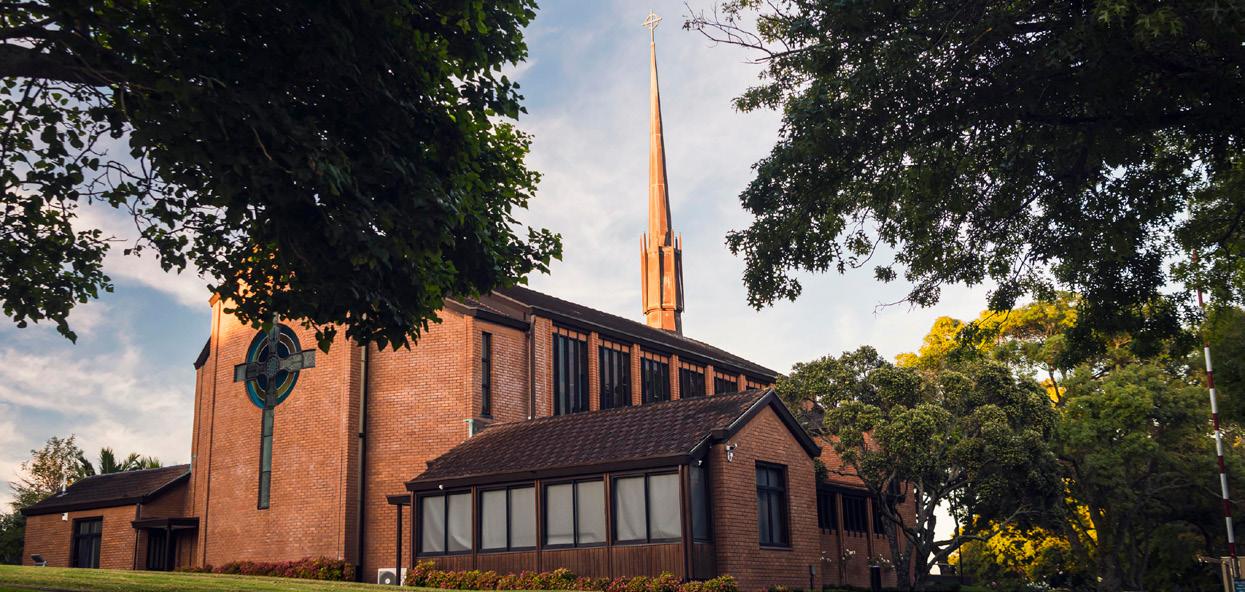
This is the school’s website: https://www.saintkentigern.com/
Saint Kentigern College has agreed to observe and be bound by the “Education (Pastoral Care of Tertiary and International Learners) Code of Practice 2021” (the Code). Copies of the code are available from the school or from New Zealand Qualifications Authority at: https://www2.nzqa.govt.nz/assets/Tertiary/TheCode/pastoral-care-code-of-practice-2021-english.pdf See the end of this booklet for more details.
Study Complaints | Nga Amuamu Tauira will assist domestic tertiary learners and international students to resolve financial and contractual disputes with their education provider, and following breaches of the Tertiary and International Learners Code of Practice can consider claims for redress.
Please view their website for more information and/or to make a complaint www.studycomplaints.org.nz
• You must wear the school uniform during your time at the school.
You can buy the uniform online or once you are in New Zealand from https://shop.saintkentigern.com/
• We have a Middle School and Senior School uniform, a formal uniform and a physical education kit. The average price of our uniform is $1200.
Term 1 Tuesday 27 January – Thursday 2 April
Term 2 Monday 20 April – Friday 3 July
Term 3 Monday 27 July – 25 September
Term 4 Monday 12 October – TBC December https://www.saintkentigern.com/college/term-dates
• Orientation starts on 28 January 2026 at 9.30 am. We are meeting at Bruce House, the college boarding accomdation.
• You must bring your mobile telephone and laptop. Wear comfortable and casual clothing. Please bring a hat to protect you from the sun. Bring any snacks or drinks. Lunch will be provided.
Our school’s emergency contact number is: +64 27 232 8155 Please call this number if you need help when you are in New Zealand. Please talk to someone at school about any worries or problems you have. Someone will be able to help you.
SOON, YOU WILL BE GOING TO SCHOOL IN NEW ZEALAND AND STAYING IN A CITY THAT IS DIFFERENT FROM THOSE IN YOUR HOME COUNTRY
To help you settle into your new home in New Zealand, here is some information to think about:
While attending our school, you will live with your family or in our school boarding accomdation, Bruce House. For more living costs and other useful information, see the following link:
https://www.naumainz.co.nz
Many students take their own lunch from home and they pack it in a lunch box. The sort of food students take varies but some food that students take are: sandwiches, sushi, fruit, raisons, muesli bars, yoghurt, biscuits, crackers, sliced raw vegetables, small snack bags of chips or nuts or dried fruit.
• Boarding students eat lunch at Bruce House.
Kents Café supplies a wide range of food to our Middle School students and Saints Café to our Senior School students.
• After the first day of school, if you are close enough, you might walk to school or ride a bike. You might even catch a school bus. Or you might drive in the car with your family.
• We drive on the left side of the road, so if you are crossing a road you need to be very careful – make sure you look both ways! Remember look right first, then left, then right again . . . then cross the road.
• You must bring your mobile phone or buy one here. You can buy a New Zealand SIM card and credit to call and text, and the Head of International Students will offer you a SIM card on orientation day.
You can bring your phone to school but cannot use it during the school day, it must be in your school bag.
In New Zealand many students visit their friends after school and in the weekends.
If you would like to invite a friend to visit your home, please ask their parent/s first and your parent/caregiver to arrange a day and time. It is a good way for your family to meet other New Zealand families too.If you are living in Bruce House the staff will help arrange your visit.
• By having friends and going to their houses or having them visit your house, you will widen your cultural experience, improve your English and of course have fun spending more time with your friends.
• If you are not sure about anything, please ask Mr Aldiss. In New Zealand it is a good thing to ask questions. If something upsets you, confuses you or makes you angry please talk with Mr Aldiss or someone at our College Talking always helps.


Congratulations on taking a risk and challenging yourself to travel and stay in a new country, culture and school.
We wish you a happy and safe time in New Zealand and at Saint Kentigern College. We hope you enjoy trying and seeing new things, making new friends, sharing information about you, your country and culture and learning more about New Zealand, its culture and people.
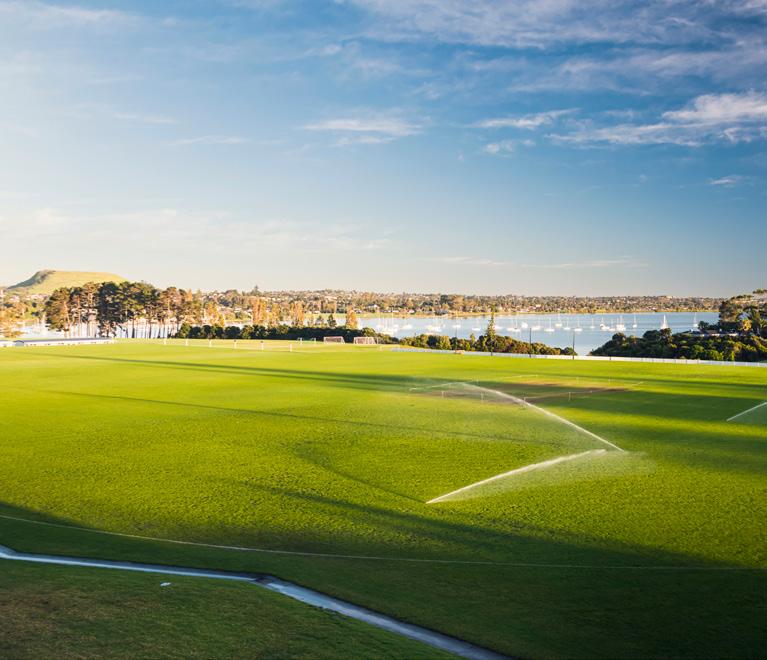
For many international students and their families, life in New Zealand differs from the lives they lead at home. The following links provide useful information about life in New Zealand and will help you prepare for your time in a New Zealand school.
Naumai NZ: https://naumainz.studyinnewzealand.govt.nz/ Information and suggestions to help you find your way, connect and explore your new home.
Tourism New Zealand: www.tourismnewzealand.com
Tourism New Zealand’s offers some valuable information about tourism opportunities for families while in New Zealand.
• 100% Pure New Zealand: www.newzealand.com/int/ 100% Pure New Zealand offers some valuable suggestions and information about tourism opportunities for families while in New Zealand.
• Study in New Zealand: https://www.studywithnewzealand.govt.nz/en
The official Government site for advice on studying abroad in New Zealand. This site offers information on a range of courses at universities, institutes and schools. You can also read student stories of real life experiences and learn important information about the costs of living in New Zealand.
Immigration New Zealand’s Studying in New Zealand: https://www.immigration.govt.nz/study/
This site offers information about studying in New Zealand, student life and working while studying. This site also offers information about visa options for students and families.
NZQA’s Studying in New Zealand: www.nzqa.govt.nz/studying-in-new-zealand
This site offers further information about New Zealand qualifications, secondary school and NCEA, Tertiary education and quality assurance of education in New Zealand.
New Zealand Now: www.newzealandnow.govt.nz
This Government website shares information about living, working, studying and investing in New Zealand, as well as information about visas, job prospects and the great lifestyle here.
Education New Zealand: https://www.enz.govt.nz/
Education New Zealand (ENZ) raises awareness of New Zealand as a study destination and supports education providers and businesses in exporting their services and products.
Disputes Resolution Scheme: https://www.studycomplaints.org.nz/
The DRS supports students in resolving complaints with their education provider.